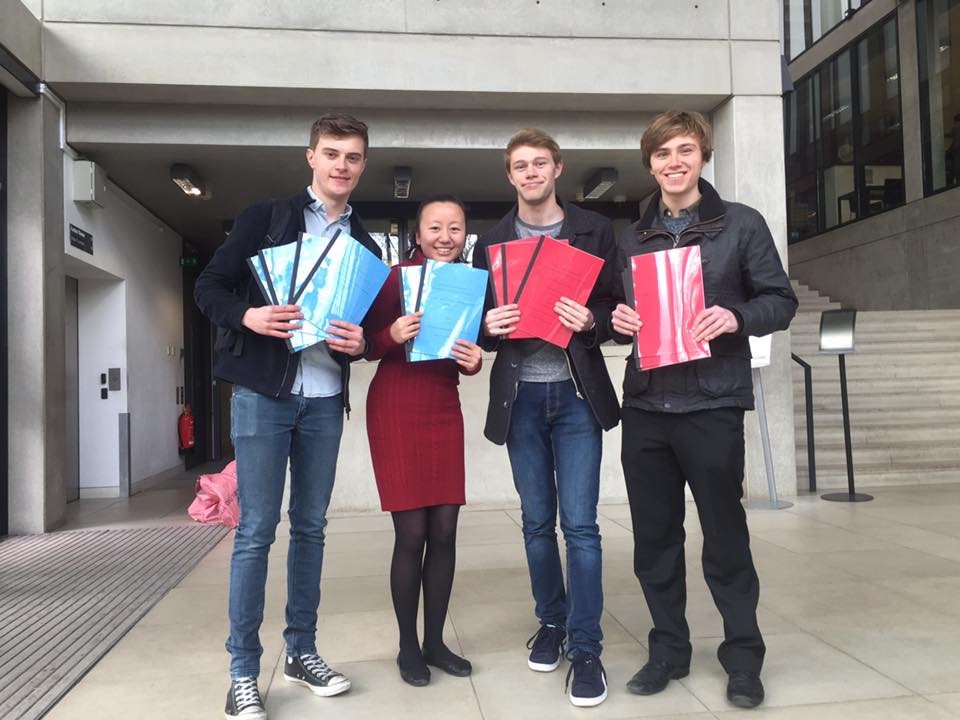 This spring Matthew Ward (Second Year, Law) and I competed as part of the Oxford team in the International Monroe E. Price Media Law Moot Court Competition in Oxford.
This spring Matthew Ward (Second Year, Law) and I competed as part of the Oxford team in the International Monroe E. Price Media Law Moot Court Competition in Oxford.
A moot court is, in essence, a mock trial, except for the fact that it does not involve any witnesses or arguments about the facts of the case: teams simply debate the law and apply it to a set of agreed facts. This competition brought together teams from every continent, ranging from Herat University in Afghanistan to the University of Sao Paolo in Brazil.
The Price Moot is focused on international media law, with a focus on human rights. This year, the case revolved around the freedom of expression and the right to privacy on the internet, involving a fictional country called Omeria, and a number of posts made on a social media platform called Chatter which were said to amount to hate speech and incitement to terrorism. This was a very topical case given the use of social media by certain public figures to spread offensive political statements, and the use of online platforms for propaganda and recruitment purposes by terrorist groups. The case was particularly interesting for us because not only did it involve the person who actually made the posts in question, but it also concerned the question of whether the social media platform he used could itself be prosecuted for his comments. This is an emerging area of law that is attracting growing attention: to what extent can the websites we use, such as Facebook and Twitter, be held accountable for the things we say online? The competition was an exciting challenge for us, given that these were areas and issues that we had not studied before.
The competition was also more than just a moot court. It is organised by the Programme in Comparative Media Law and Policy at the University of Oxford and is designed to raise awareness of international media law and provide an opportunity for those interested in media law to meet and discuss ideas. We had the opportunity to attend a number of seminars, discussions and lectures on media law. The competition began with a seminar provocatively entitled: ‘Is there a global crisis in media law?’ There was also a very interesting discussion with senior executives from Facebook, Google and Microsoft about how they are coping with hate speech and statements that incite violence.
We were able to relax and get to know the other competitors at a number of social events during the programme, such as a welcome reception at Freud’s bar and a reception at the Ashmolean Museum. The competition gave us the opportunity to meet fellow law students and experts from around the world, including the Bahamas, Lithuania, Germany, and China.
The Oxford team, which comprised of myself, Matthew Ward, Chen Chen (Magdalen) and Oliver Mills (Wadham) reached the final 8 out of 40 competitors, unfortunately losing narrowly to the National Law Institute University, Bhopal, India, in the quarter finals. On the way to that stage we successfully competed against Humboldt University of Berlin, Singapore Management University, Eugene DuPuch Law School (Bahamas) and the Benjamin N. Cardozo School of Law, New York.
We would like to thank our coach, Grace Cheng, for all of her help and support over the process, which proved invaluable, and the Faculty of Law for facilitating our competing in the tournament. The experience was a great opportunity to engage in contemporary issues in media law, develop our advocacy skills and meet likeminded students from around the globe.
By Paul Fradley (Second Year – Law)
Read more about Law at Brasenose.
